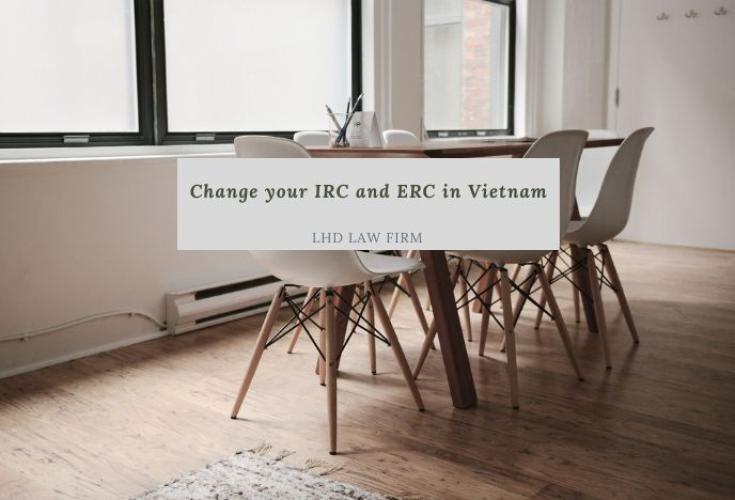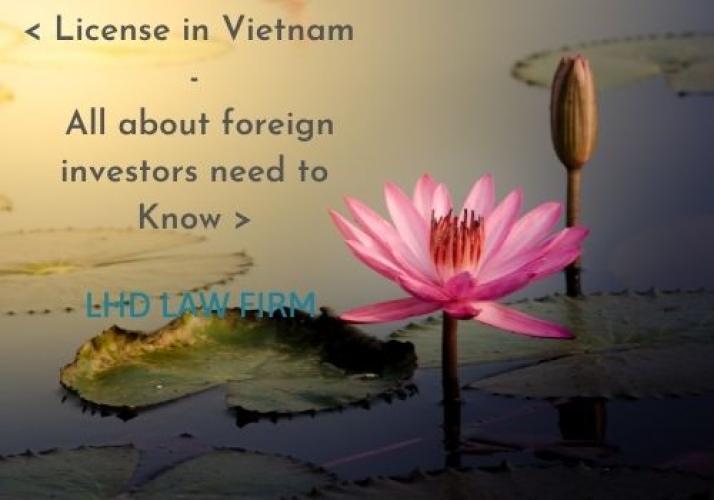How To Create A Start-Up In Vietnam For Foreign Smes ?
- 25/05/2021

→ Create a startup in Vietnam for foreign ?
 CONTENT
CONTENT
 CONTENT
CONTENT
How to create a startup in Vietnam for foreign SMEs?
Opening a business in Vietnam is also encouraged, and the Vietnamese government, although the law and the process can be complicated.
Vietnam is a high-growth emerging market in Asia jewels, often base it easier to do business than China itself. The economy is expected to grow 6% annually in the coming years to Vietnam's more than that, and the youth is growing thanks to the domestic market, and to be liberally educated. The following article provides everything you need to know to create a startup in Vietnam.
Potential for small and medium enterprise development in Vietnam
1. How are small and medium enterprises in Vietnam defined?
Micro-enterprises, small and medium-sized enterprises (SMEs) , also known as small and medium-sized enterprises, are enterprises with small capital, labor, or income. SMEs can be divided into three groups according to their size: micro, small and medium-sized enterprises.
According to the World Bank Group criteria, micro-enterprises are enterprises with less than 10 employees, small enterprises with 10 to 200 employees and a capital of up to 20 billion Dong. On a capital scale of 20 billion Dong or less. Medium-sized enterprises have 200-300 employees and a capital of 20-100 billion Dong. In each country, people have their own criteria for defining the small and medium-sized enterprises in their country.
Vietnam has its own criteria to define SMEs
Criteria to identify SMEs in Vietnam:
Micro enterprises in the fields of agriculture, forestry, fishery, and industry and construction have an average number of employees participating in social insurance of no more than 10 people per year and a total annual revenue of not more than 3 billion Dong or total capital not exceeding 3 billion Dong.
Micro-enterprises in the field of commerce and services have an average number of employees participating in social insurance of no more than 10 people and a total annual revenue of not more than 10 billion Dong or a total capital of not more than 3 billion Dong.
Small enterprises in the fields of agriculture, forestry, fishery and industry and construction have an average number of employees participating in social insurance of no more than 100 people a year and a total annual revenue of not more than 50 billion Dong. or has a total capital of not more than 20 billion Dong.
Small enterprises in the field of commerce and service have an average number of employees participating in social insurance each year not exceeding 50 people and a total annual turnover of not more than 100 billion Dong or a total capital of not more than 50 billion Dong, but is not a micro-enterprise.
Medium-sized enterprises in the fields of agriculture, forestry, fishery and industry and construction with an average number of employees participating in social insurance not exceeding 200 people per year and total annual revenue not exceeding 200 billion Dong or the total capital must not exceed 100 billion Dong.
Medium enterprises in the field of commerce and services have an average number of employees participating in social insurance of no more than 100 people per year and a total annual revenue of not more than 300 billion Dong or total capital not exceeding 100 billion Dong.
2. Real state of SMEs in Vietnam
SMEs are an important part of the private sector and make up a large part of Vietnam’s business. There are currently about 541,753 companies operating in the economy across the country with a registered capital of about $130 billion, which is about a third of the total registered capital of companies.
SMEs enterprises make up the majority in Vietnam
SMEs account for about 40% of GDP each year, 30% of the state budget, 33% of the value of industrial production, 30% of the value of export products and attract almost 60% of workers ... Although SMEs are large, small and micro enterprises are very large. the large number of medium-sized enterprises is only 1.6% of the total number of SMEs. Due to its small scale, this group of companies faces many difficulties in its operations, such as the ability to raise capital to invest in modern machinery and technology to serve production and business. ; lack of experience in corporate governance; ability to compete, dominate the domestic market …
In fact, small and medium enterprises are the target of interest of the Vietnamese government. Some key industries and fields are supported with capital, premises, taxes, etc., creating favorable conditions for foreign investors to come here to start their businesses.
Overview of policies of the Government of Vietnam towards small and medium enterprises
1.Small and medium-sized enterprises are increasingly receiving attention in national legislation
Enterprise and SME policies have a recent history in Vietnam. In 1999, the government enacted the Enterprise Law, which dealt with everything related to the establishment, administration and operation of businesses regardless of their size. Then, in 2001, national law gave the first legal definition of SME and established the Agency for SME Development, now known as the Agency for Enterprise Development (AED) and the SME Development Council. Finally, in 2018, Vietnam voted on the Law on Supporting SMEs, which sets out specific support measures for SMEs and demonstrates the Government's commitment to promoting the domestic SME sector.
The Vietnamese government has a law about SMEs
2.The SME Development Fund and the Loan Guarantee Fund are useful policy initiatives
The Vietnamese government provides financial incentives to SMEs mainly through the SME Development Fund (SMEDF) and the Credit Guarantee Fund (CGF). Both are helpful but overlooked initiatives. SMEDF, which is transferred mainly through partner banks, provides 80% of the loan amount at below-market interest rates and the borrower must contribute 20% of the project cost. ...
Steps to establish a small and medium-sized company for foreign investors
1. Forms of establishing a company with foreign investment capital
Foreign entrepreneurs can set up a start-up company in Vietnam by establishing a company with 100% foreign capital or in the form of a joint venture. Each of these forms of start-up has its advantages and disadvantages, but it is better to choose a 100% foreign-owned startup. Ventures are also rarely used by startup founders nowadays.
2. How to get an investment certificate in Vietnam?
Before starting a new business in Vietnam, foreign investors must obtain an investment certificate from a competent Vietnamese agency. An application for foreign direct investment is required, the investor is an individual or a legal entity.
Compulsory procedures to establish a start-up in Vietnam
Each business project representing a specific investment will be subject to specific requirements and regulations set by the Vietnamese government. For large transactions, stricter conditions will apply than for small projects and an investment verification procedure will apply.
3.How to register a startup in Vietnam?
An investment certificate / license is a Vietnamese government permit allowing foreign-owned economic enterprises to operate in Vietnam. The registration certificate allows you to register a commercial activity.
Contrary to popular belief, the procedure for registering a joint venture is not necessarily easier than a company with 100% foreign investment, since everything will depend on the percentage of capital held. Foreign investors. If this ratio exceeds 51%, the joint venture will not be considered a local company and the registration procedure will be the same as for a company with 100% foreign capital.
Problems in the procedure for setting up a startup in Vietnam
Foreign investors who want to set up a foreign start-up company in Vietnam must apply to the Planning and Investment Department, where the company is headquartered. The dossier includes: a certificate of registration of the investment, a report on the financial capabilities of the investor, the investor's ID or passport, the terms of the company association (in case the investor is a corporation). Documents confirming the creditworthiness of a start-up company and a specific investment project.
4. Taxes for small and medium-sized enterprises with foreign investment
-
Business license fee. This is billed right after you have registered your business and then paid annually thereafter. For a typical company with little capital, the business license fee is 2 million VND per year (85 USD).
-
VAT: Usually assumes 10% on most transactions, but the actual rate depends on the product or service your company uses. This can be charged and credited.
-
Company income tax (CIT): The tax rate on corporate profits is 20%, with a few exceptions. For example, software development companies may benefit from an incentive tax rate, and lower tax rates for SMEs are being discussed.
Those who want to create a startup in Vietnam must present some specific legal documents. These include a valid identity card or passport, as well as proof of financial solvency.
5. NEED LAWYER FOR ADVISE ?
→ LHD Law Firm
We offer a portfolio of Vietnam business services and Vietnam market entry solutions covering every aspect of these processes. Our expertise encompasses a wide-portfolio of services and advice relating to Vietnam market entry, typically leading to the establishment of:
- A Representative Office in Vietnam
- A Vietnamese investment company with total or part foreign ownership
- A Joint Venture in Vietnam
- A Special Purchase Vehicle using a Hong Kong or a low or zero tax company (“offshore”)
Additionally, LHD law Firm Worldwide offers
- Bespoke Vietnam Business Services relating to the identification of suitable tax advisers, lawyers, local partners, premises, factories, management, staff and expatriate housing.
- Professional corporate administration services. We have the capacity to deliver a turn-key back office function for an operation in Vietnam.
Whilst our Vietnam Business Services and Vietnam market entry solutions are broad, many of our clients utilise our services selectively, and this approach is welcomed.
Our clients are diverse. They include major US corporations, international companies and both owner managed business and entrepreneurs.
So, if you are an executive tasked with investigating your company's Vietnam market entry, you should contact us by clicking on the button below:

![Setting Up Business In Vietnam [New 2024]](data/News/setup-business-in-viet-nam-5-step-guides_1703231174.jpeg)









0 comment